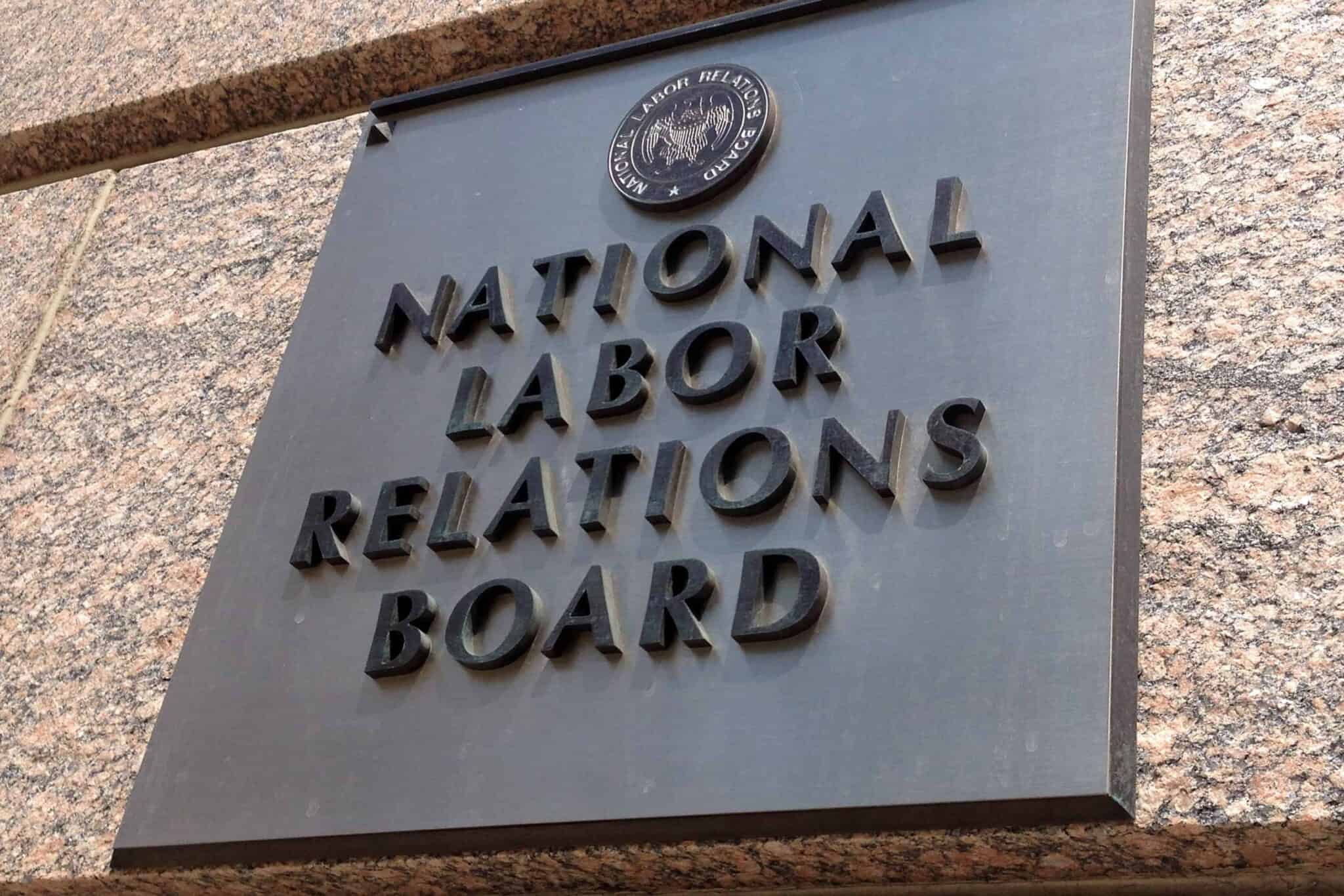
Andrew Strom is a union lawyer based in New York City. He is also an adjunct professor at Brooklyn Law School.
We probably won’t learn until June whether the Supreme Court will overrule its unanimous 1984 decision in Chevron U.S.A. Inc. v. Natural Resources Defense Council, Inc., and declare that judges should not give any deference to an agency’s interpretation of the statute the agency enforces. But, two recent circuit court cases illustrate how even when reviewing the National Labor Relations Board’s (NLRB’s) fact-finding, judges can always find a way to deny enforcement of decisions they don’t like. And, it’s not just far-right ideologues who do this; even more moderate former corporate lawyers on the bench can be quick to think that the Board has overstepped.
The National Labor Relations Act (NLRA) provides that when courts review NLRB decisions, “[t]he findings of the Board with respect to questions of fact if supported by substantial evidence on the record considered as a whole shall be conclusive.” The Supreme Court has explained that a court may not “displace the Board’s choice between two fairly conflicting views even though the court would justifiably have made a different choice.” And yet, last month, three right-wing judges (Henderson, Katsas, and Randolph) did just that in Stern Produce Company, Inc. v NLRB. The NLRB had found that Stern Produce had violated the NLRA by creating the impression that it was placing one union activist under surveillance, and by issuing a written warning to another union activist. In 2019, two Republican Board Members agreed that this company had committed “multiple and serious violations” of the NLRA in an effort to defeat a union organizing drive. Then in 2021, after the NLRB General Counsel accused the company of selectively failing to recall pro-union employees, Stern Produce agreed to recall the employees with backpay.
One of the workers Stern Produce agreed to recall was a truck driver named Jose Ruiz. A few weeks after Ruiz was reinstated, he covered the inside-facing camera in the cab of his truck during his lunch break. His supervisor promptly texted him: “you can’t cover the camera it’s against company rules.” That supervisor testified that he only checked the truck cameras when there was a safety issue, an accident, a harsh brake incident, or a stop in an unusual location for more than two hours. None of those circumstances were present when the supervisor sent the text, the supervisor had never previously texted a driver about covering the camera, and the supervisor never explained why he had looked at Ruiz’s camera. The Board concluded that the supervisor’s text was out of the ordinary, and thus, Ruiz, as an open union supporter, would have reasonably interpreted this “sudden and unusual interest” in viewing the inward-facing camera while he was stopped for lunch as the company monitoring him for signs of union activity.
The D.C. Circuit panel ruled that there was not substantial evidence to support the Board’s finding. The Court stated that regardless of the employer’s past practice, Ruiz shouldn’t have been surprised that he was under surveillance because in the employee handbook the company reserved the right to “monitor, intercept, and/or review” any data in its system at any time without notice. When the Obama Board held that an entity could be a joint employer of its contractor’s employees based on unexercised reserved power, Judge Randolph, the author of this opinion, criticized the Board. Yet now he thinks it should be obvious to workers that an employer may exercise its previously unexercised reserved power at any time.
The D.C. Circuit also reversed the Board’s finding that Stern Produce had issued a written warning rather than a counseling to another worker, Uvaldo Ponce, who was reinstated as part of the NLRB settlement. Ponce said something to a co-worker that the company viewed as a violation of its anti-harassment policy, even though the co-worker did not complain. The Board held that the written warning constituted discrimination against Ponce because two other workers who had made offensive remarks had received counselings for their first offense. The D.C. Circuit panel held that there was insufficient evidence of disparate treatment because “[a] grand total of two instances does not a pattern make.” But, the employer did not offer any instances where a first offense led to a written warning. Substituting its own judgment for the Board’s, the judges decided that Ponce wasn’t singled out because Stern’s managers testified that the company’s disciplinary policy “leaves room for flexible, case-by-case resolution.” The judges further second-guessed whether there was even a meaningful distinction between a written warning and the less serious counseling because a counseling also “results in a written corrective action form that documents the misconduct.” Of course, the company thought there was enough of a difference to maintain those separate tiers of discipline.
In another recent case, New Concepts for Living, Inc. v. NLRB, a George W. Bush appointee in the Third Circuit, joined by two former corporate lawyers appointed by Presidents Clinton and Obama, similarly found that an NLRB decision was not supported by substantial evidence. In New Concepts, the workers were represented by a union, but they hadn’t had a contract for two years. The employer issued a memo to employees regarding resigning membership in the union. Under settled Board law, an employer may provide “neutral information” to workers regarding their right to withdraw from union membership, but the employer may not “attempt to monitor whether employees do so.” Here, the employer’s memo directed workers to sign and return to the employer a letter attached to the memo if they wanted to resign. The employer then forwarded the signed letters to the union, noting the number of workers who signed. The Board viewed this as “monitoring,” since the process made it clear to workers that the employer would see which workers were resigning from the union. The Third Circuit took issue with the Board’s conclusion that the employer was “monitoring” whether employees resigned because there was no evidence that it “maintained a list of those who had withdrawn … for purposes beyond payroll administration.” Recall that a court is supposed to uphold the Board’s decision under the “substantial evidence” test if the Board makes a choice between “two fairly conflicting views.” Here, maybe the employer didn’t intend to monitor which employees chose to resign, but for workers told to return forms to the employer that should have gone to the union, the employer’s conduct sure looks like monitoring.
In New Concepts, the Board had also found the employer guilty of bad faith bargaining, based on several regressive proposals, including a proposal to eliminate binding arbitration from the contract. The employer’s representatives testified that cost concerns motivated this opposition to arbitration. Even though the Third Circuit upheld the Board’s findings that the parties had never arbitrated a dispute, and arbitration is generally less expensive than litigation, the court nevertheless held that the employer had not bargained in bad faith because the parties had not “reached a firm agreement on an arbitration clause” when the employer made its regressive proposal.
The courts’ failure to defer to the NLRB’s factual findings in these cases is a reminder that even if the Supreme Court decides not to overrule Chevron, some judges will still be more than willing to second-guess the Board.









Daily News & Commentary
Start your day with our roundup of the latest labor developments. See all
July 2
Block, Nanda, and Nayak argue that the NLRA is under attack, harming democracy; the EEOC files a motion to dismiss a lawsuit brought by former EEOC Commissioner Jocelyn Samuels; and SEIU Local 1000 strikes an agreement with the State of California to delay the state's return-to-office executive order for state workers.
July 1
In today’s news and commentary, the Department of Labor proposes to roll back minimum wage and overtime protections for home care workers, a federal judge dismissed a lawsuit by public defenders over a union’s Gaza statements, and Philadelphia’s largest municipal union is on strike for first time in nearly 40 years. On Monday, the U.S. […]
June 30
Antidiscrimination scholars question McDonnell Douglas, George Washington University Hospital bargained in bad faith, and NY regulators defend LPA dispensary law.
June 29
In today’s news and commentary, Trump v. CASA restricts nationwide injunctions, a preliminary injunction continues to stop DOL from shutting down Job Corps, and the minimum wage is set to rise in multiple cities and states. On Friday, the Supreme Court held in Trump v. CASA that universal injunctions “likely exceed the equitable authority that […]
June 27
Labor's role in Zohran Mamdani's victory; DHS funding amendment aims to expand guest worker programs; COSELL submission deadline rapidly approaching
June 26
A district judge issues a preliminary injunction blocking agencies from implementing Trump’s executive order eliminating collective bargaining for federal workers; workers organize for the reinstatement of two doctors who were put on administrative leave after union activity; and Lamont vetoes unemployment benefits for striking workers.